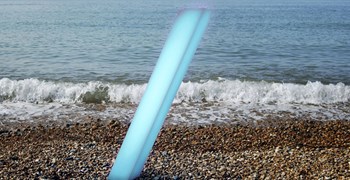Soviet-British alliance could have averted World War II, diaries of Russian ambassador who drank with Churchill reveal
This article originally appeared on Culture24.
Brilliant Soviet diplomat was offered pre-war Vodka by Churchill, ran risk of being recalled to Moscow and shot
 Ivan Maisky (right), the Ambassador of the Soviet Union, signing the Soviet–Finnish Non-Aggression Pact in Helsinki on January 21 1932© Public domain via Wikimedia Commons
Ivan Maisky (right), the Ambassador of the Soviet Union, signing the Soviet–Finnish Non-Aggression Pact in Helsinki on January 21 1932© Public domain via Wikimedia CommonsGabriel Gorodetsky, a fellow at All Souls College in Cambridge, is bringing out a book of edited extracts from the journals of Ivan Maisky, the key Soviet representative in Britain between 1932 and 1943. Discovered in the archives of the Russian Foreign Ministry, the Professor says they represent the broadest, largest and most valuable set of personal accounts ever to emerge from Soviet records.
“At the epicentre of the dramatic events leading to World War II, Maisky was possessed with a passion to leave behind his own account,” says Gorodetsky.
“The diary tells an exceptional story of a brilliant Soviet diplomat who, despite the looming danger of being recalled any day to Moscow and shot like most of his colleagues posted in other European capitals, diligently sought to harmonise Soviet and British interests.
“The result is absolutely mesmerising. For the last decade I have scrupulously edited and checked the diary against a vast range of Russian and Western archival material as well as personal papers to allow the wider public access to this remarkable relic.
“It reveals the degree to which Russia was left out in the cold during the 1938 Munich Agreement and how it might have been possible to prevent the Russians from signing the neutrality pact with Nazi Germany in 1939.
“It exposes that if the alliance that was forged between Great Britain and the Soviet Union in July 1941 had been in place two years earlier, World War II might have been averted.”
“The diary further reveals how, following the German invasion of Russia and with Churchill now in the saddle, Maisky unhesitatingly exploited the pro-Soviet feelings in London to create a momentous public movement in favour of a second front, plotting with Eden and Beaverbrook against the Prime Minister for his rejection of the cross channel offensive.”
Extract: Maisky on visiting Churchill on September 4 1938 – the eve of Chamberlain’s meeting with Hitler
"I visited Churchill on his country estate. A wonderful place! Eighty-four acres of land. A huge green hollow.On one hillock stands the host’s two-storey stone house – large and tastefully presented. The terrace affords a breath-taking view of Kent’s hilly landscape, all clothed in a truly English dark-blue haze.
Churchill took me to a pavilion-cum-studio with dozens of paintings – his own creations – hanging on the walls. I liked some of them very much.
Finally he showed me his pride and joy: a small brick cottage, still under construction, which he was building with his own hands in his free time.
‘I’m a bricklayer, you know,’ Churchill said with a grin. ‘I lay up to 500 bricks a day. Today I worked half the day and, look, I’ve put up a wall.’
He slapped the damp and unfinished brickwork with affection and pleasure. It’s not a bad life for the leaders of the British bourgeoisie! There’s plenty for them to protect in their capitalist system!
Churchill must have guessed my thoughts because, taking in his flourishing estate with one sweeping gesture, he said with a laugh: ‘You can observe all this with an untroubled soul! My estate is not a product of man’s exploitation by man: it was bought entirely on my literary royalties.’
Churchill’s literary royalties must be pretty decent! Then the three of us had tea – Churchill, his wife and I. On the table, apart from the tea, lay a whole battery of diverse alcoholic drinks. Why, could Churchill ever do without them?
He drank a whisky-soda and offered me a Russian vodka from before the war. He has somehow managed to preserve this rarity.
I expressed my sincere astonishment, but Churchill interrupted me: ‘That’s far from being all! In my cellar I have a bottle of wine from 1793! Not bad, eh? I’m keeping it for a very special, truly exceptional occasion.’ ‘Which exactly, may I ask you?’
Churchill grinned cunningly, paused, then suddenly declared: ‘We’ll drink this bottle together when Great Britain and Russia beat Hitler’s Germany!’ I was almost dumbstruck. Churchill’s hatred of Berlin really has gone beyond all limits!”
- The Maisky Diaries are published by Yale University Press.
What do you think? Leave a comment below.
Alexander Kerensky Museum, London
Alexander Fyodorovich Kerensky (1881-1970) was the last President of Russia before the Bolshevik coup d’état of October 1917 (often referred as ‘old’ Russia or ‘that’ Russia to distinguish it from Russia of the Soviet and Post-Soviet times). This is the only museum dedicated to him.
Hack Green Secret Nuclear Bunker, Nantwich
Declassified in 1993, this 35,000-square ft underground bunker would have been the centre of Regional Government had nuclear war broken out. Built during the 1950's as part of a vast secret radar network codenamed 'ROTOR', the bunker today offers a totally different day out.
Science Museum, London
The Science Museum’s new exhibition remembers the characters whose ambition shaped Russia’s space exploration programme. Until March 13 2016.












